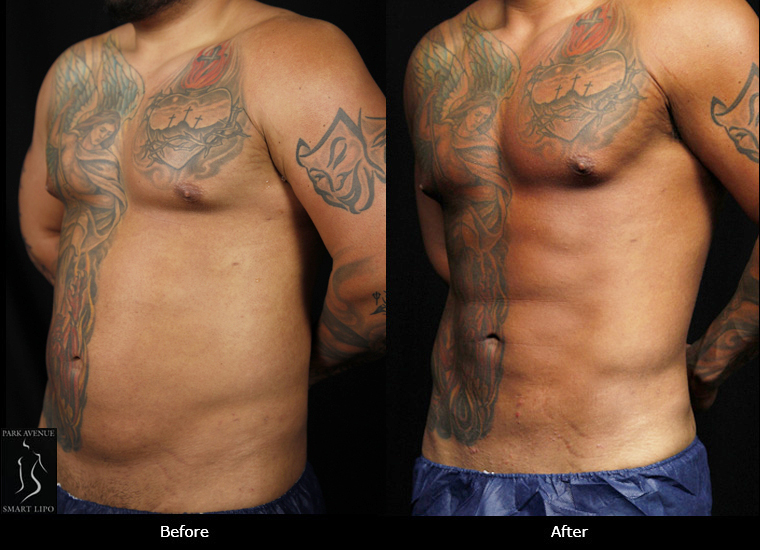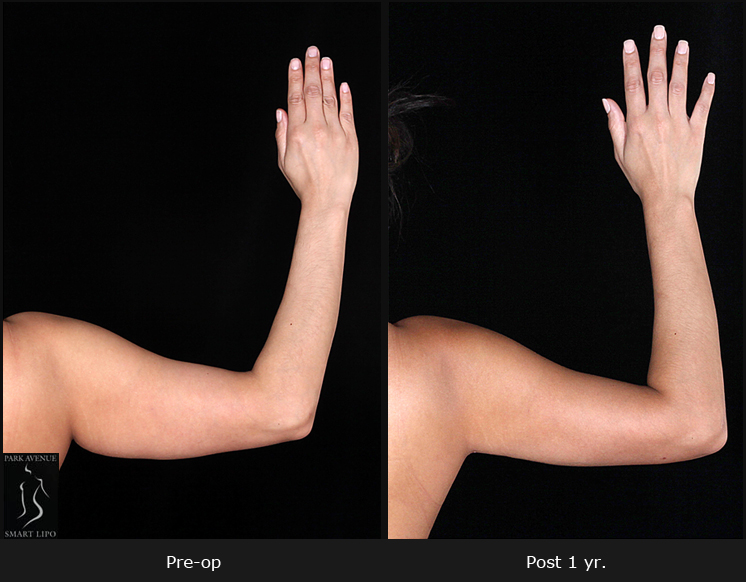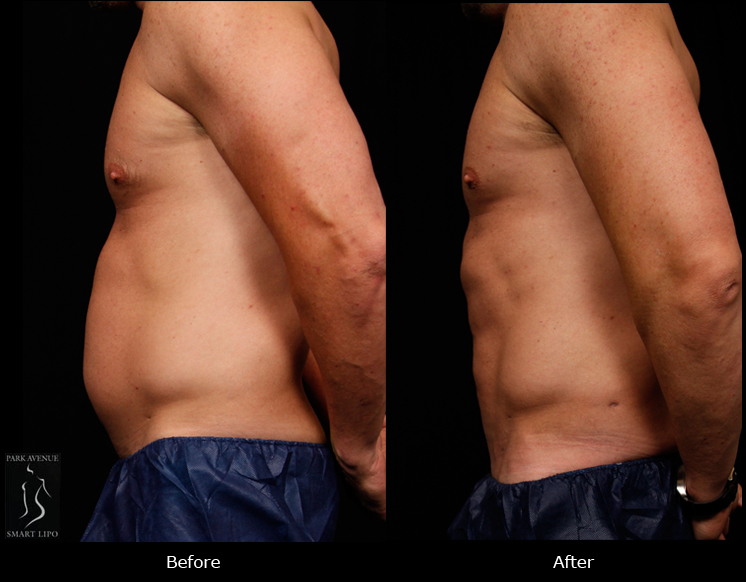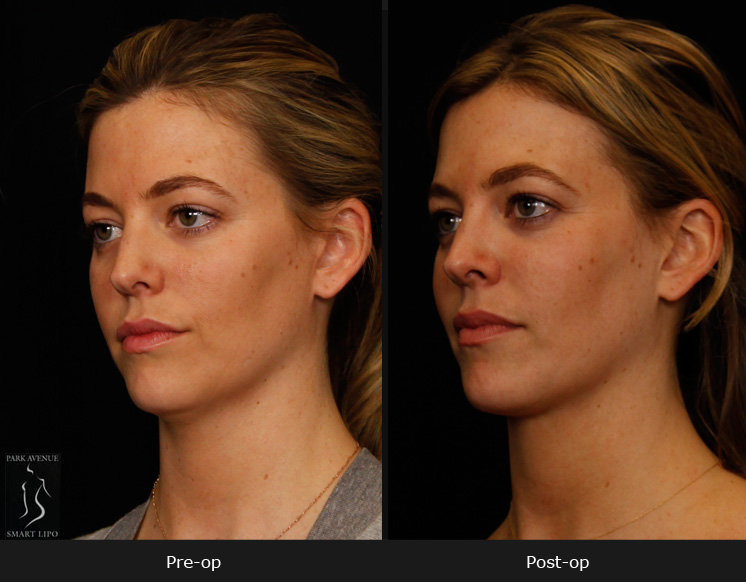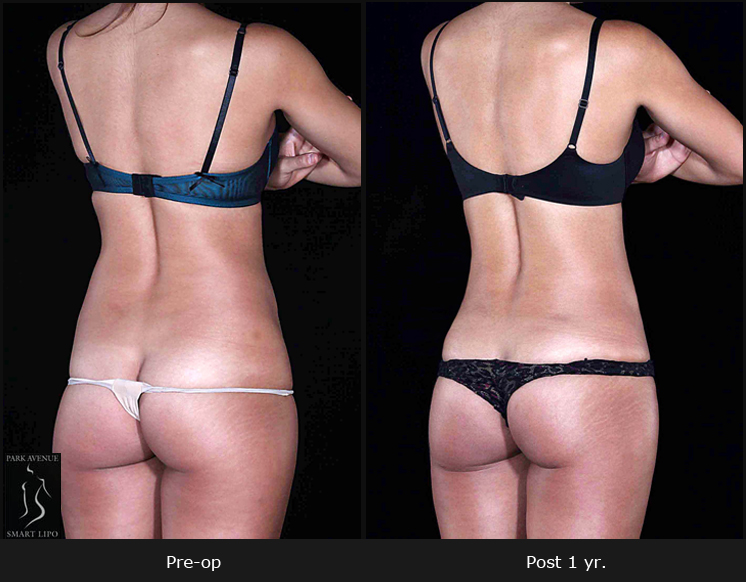Gynecomastia or abnormal enlargement of male breast tissue occurs due to factors such as hormonal imbalance, genetic traits, and obesity. The condition can impair a man’s confidence and affect quality of life. Fortunately, today, expert NYC plastic surgeons offer safe and effective treatment for this common concern. Gynecomastia treatment in NYC, performed using the minimally invasive Smartlipo Triplex laser-assisted device, removes the excess fat and tissue and results in a well-contoured, manly chest.
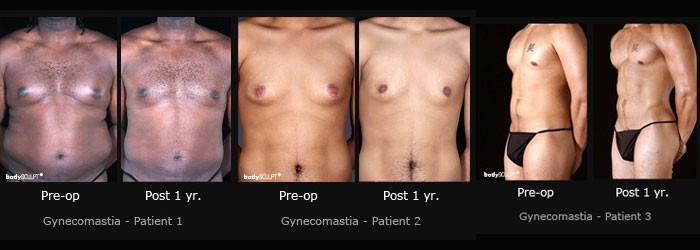
Start a journey towards a more confident you – schedule your consultation for male breast reduction surgery!
Contact us today
In leading NYC liposuction centers, gynecomastia treatment is provided using the FDA-approved Smartlipo Triplex workstation, which features three powerful laser wavelengths (1064nm, 1320nm and 1440nm). The device is designed for effective fat reduction and skin tightening, and features intelligent delivery systems to ensure controlled energy delivery and prevent overtreatment. This laser liposuction procedure can be performed under local anesthesia, and involves little surgical trauma and downtime. However, like any surgical procedure, proper pre- and post-op care are crucial for smooth recovery.
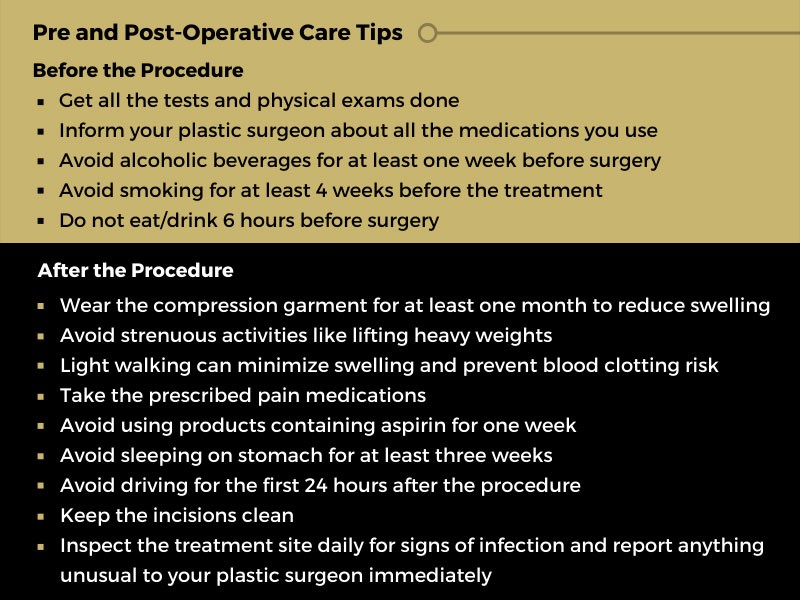
Pre and Post-Operative Tips for Gynecomastia Surgery in NYC
Before the procedure
- Complete the mandatory pre-operative mandated tests and physical exam.
- Remove hair around the chest and under-arms completely prior to the procedure.
- Avoid sun tanning starting 2 weeks prior to surgery as doing so may increase the risk of permanent scarring.
- Avoid smoking and use of nicotine for at least four weeks before the treatment.
- Avoid alcoholic beverages for at least one week prior to surgery.
- Avoid herbal supplements and anti-inflammatory drugs.
- Inform your surgeon about any medications used for two weeks before the surgery so that you can get advice on what and what not to take.
- Depending on your job, plan to take one or two weeks off after the treatment.
- Get the things you would need following the procedure in advance and keep everything handy.
- Buy the recommended compression garment that you would need to wear after the procedure.
On the day of the procedure:
- Do not eat/drink 6 hours before surgery.
- Do not apply any lotions, moisturizers and deodorants.
- Wear loose, comfortable clothing.
- Make sure to have a responsible person accompany you.
After the Procedure:
- Avoid driving for the first 24 hours; routine activity can be resumed after 48 hours and light exercise, after one week or when you feel comfortable.
- Light walking may be recommended to reduce swelling and reduce risk of blood clotting.
- Wear the recommended compression garment for a month to improve blood circulation, minimize swelling, flush out of harmful fluids, and speed the healing process.
- Avoid heavy activities such as lifting weights or those involving physical or mental stress, especially during the first two weeks after surgery.
- Avoid smoking and alcohol for a few more weeks post-op because it might prolong healing time and increase risk of complications.
- Drink plenty of water and get enough rest.
- Take the prescribed pain medications, but do not use products containing aspirin for at least one week.
- Sleeping on your stomach is should be avoided for at least three weeks. The surgical incisions should not be subjected to excessive force, swelling, abrasion or motion during the time of healing.
- Avoid exposing the scars to sun for at least 12 months.
- Keep the incisions clean and inspect daily for signs of infection. If you notice anything abnormal, inform your surgeon.
- In case of any discomfort such as shortness of breath, chest pains or an unusual heartbeat, seek medical attention immediately.
Key Benefits of the Procedure
One of the major benefits of laser liposuction is that it coagulates the small blood vessels to minimize bleeding, swelling and bruising. Other benefits of the procedure include –
- Reduced risk of complications
- Involves only local anesthesia
- Procedure performed on an outpatient basis
- Negligible scarring
- Minimal downtime and recovery
- Fast recovery
Not everyone is a good candidate for gynecomastia treatment. Those who are bothered by the feeling that their breasts are too large, whose breast development has stabilized, whose condition cannot be corrected through alternative medical treatments can consider the treatment. Men experiencing constant fluctuations in body weight or who are very overweight or obese with a BMI of over 30 may not be good candidates for this procedure. The procedure is not recommended for people with multiple medical conditions or those who are on blood-thinning medications.
Ready to achieve a more contoured, masculine physique with gynecomastia treatment in NYC?
Call us at 212-265-2724
Gynecomastia treatment in NYC is an effective option to effectively treat a small to moderate degree of male breast enlargement. For safe and effective gynecomastia treatment, choose an AAAASF-accredited plastic surgery practice dedicated to Smartlipo treatment. Such practices have plastic surgeons who are experts in performing the procedure. Following your surgeon’s pre- and post-surgical instructions will help prepare your body for the treatment and support smooth and fast healing.


